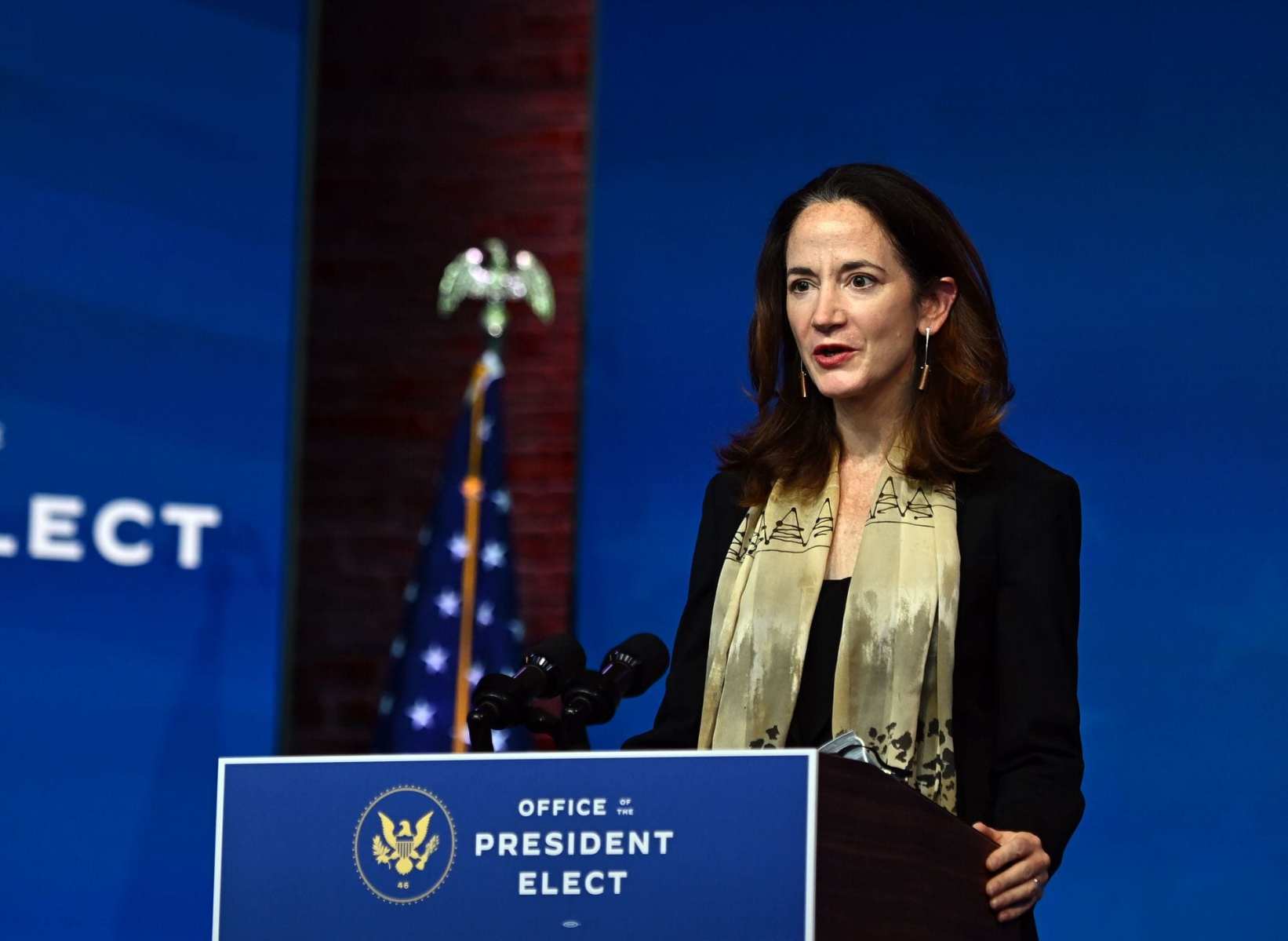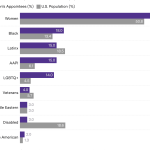For the latest news on the historic presidential inauguration and impacts of the new administration, subscribe to The 19th’s daily newsletter.
From the early days of his campaign, President Joe Biden promised to establish a political team that “looked like America,” specifically committing to elevate the voices of women and people of color in top positions that have historically been dominated by White men. As of January 7, Biden had nominated a record number of women to serve in his Cabinet.
Biden’s nominations — of “both substantive and symbolic importance” — will directly affect policy, said Debbie Walsh, director at the Center for American Women and Politics at Rutgers University (CAWP).
“What we will see are women who are playing critical and key roles and having a seat at the most powerful table in the world, where their perspectives and voices will be heard,” said Walsh. “They will be bringing to that table all of their experiences as women, as women of color … and they will see the world through that lens.”
If confirmed by the Senate, 12 women, including eight women of color, will fill 48 percent of Biden’s Cabinet and Cabinet-level positions, according to a study from CAWP. The closest another administration came to this level of gender equality in top positions was under President Bill Clinton, whose Cabinet had eight women at one time.
Biden nominated many who will be firsts in their positions. Avril Haines was confirmed Wednesday as director of national intelligence, the first woman in the position. If confirmed, Janet Yellen would be the nation’s first woman Treasury secretary and Deb Haaland would be the first Native American as head of the Department of the Interior. Biden has named a number of other firsts to positions just under the Cabinet level, recently appointing Dr. Rachel Levine as assistant secretary of health, who would be the first-ever transgender person to be confirmed by the Senate. He also appointed Michael Leach as the first ever White House chief diversity and inclusion officer.
Fewer of Biden’s nominees are White than in previous administrations, as well; on Friday, Lloyd Austin was confirmed as the nation’s first Black defense secretary. Thus far, people of color make up 52 percent of Biden’s secretaries and nominated Cabinet-level positions, compared with 16.7 percent in the Trump administration, according to the tallies from nonprofit group Inclusive America, which has tracked diversity in government for the past four administrations.
Advocacy groups including Inclusive America say the work is not finished with the Cabinet nominations.
“We’re excited that [Biden is] breaking glass ceilings, but he’s got to do it at every level,” said Mark Hanis, the co-founder of Inclusive America, stating that further change is needed to fully represent the U.S. population in government. While being a “first” is a historic feat, it does not necessarily create a pipeline for others who share the same identity, Hanis said.
“It’s not just those who are in front of the cameras or in front of microphones. There’s a lot of other levels of government that we want to make sure that that same commitment is as aggressively pursued,” Hanis said.
The voices of women and people of color, who have been disproportionately affected by COVID-19, will now be represented on the top level of government to target the most vulnerable communities during the pandemic. Hanis said this level of representation will directly impact policymaking when it comes to health care.
Walsh said having more women and people of color in top decision-making positions means the needs of more of the population will be highlighted.
“You won’t have that situation where there will be a meeting about women’s health and women aren’t there,” said Walsh.
The women nominated for Biden’s Cabinet:
- Kamala Harris, vice president
- Marcia Fudge, secretary of housing and urban development
- Jennifer Granholm, secretary of energy
- Isabel Guzman, administrator, Small Business Administration
- Deb Haaland, secretary of the interior
- Avril Haines, director of national intelligence (confirmed this week)
- Gina Raimondo, secretary of commerce
- Cecilia Rouse, chair, Council of Economic Advisors
- Katherine Tai, U.S. trade representative
- Neera Tanden, director, Office of Management and Budget
- Linda Thomas-Greenfield, US. ambassador to the United Nations
- Janet L. Yellen, secretary of the Treasury





